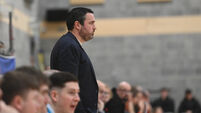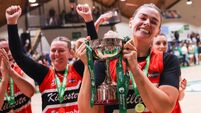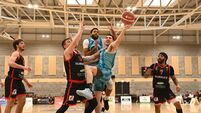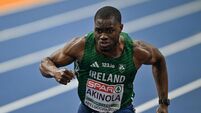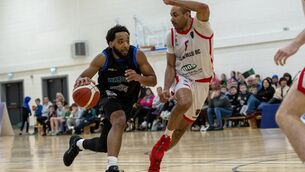Do domestic club loyalties trump support for the Ireland senior basketball team?
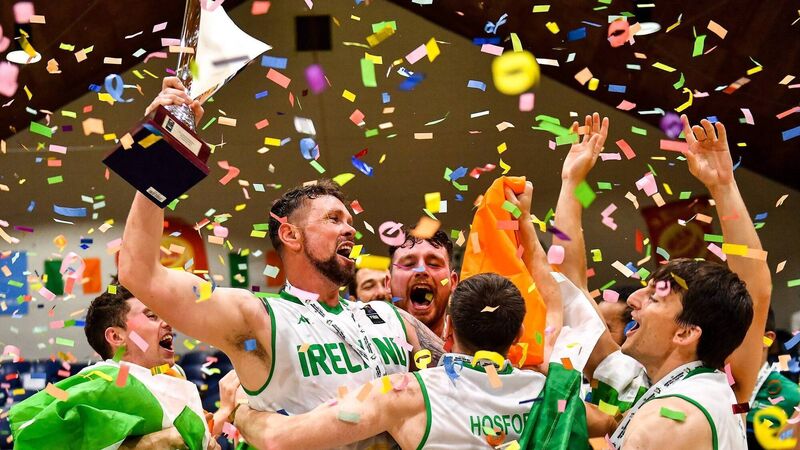
Captain Jason Killeen leads the Irish celebrations after they won the FIBA Men’s European Championship for Small Countries at the National Basketball Arena in Tallaght last August.
There's something about win-or-bust that is simply irresistible to sports fans so when basketball’s cup weekend rolls around every January, interest in the domestic game always peaks.
Thousands of neutrals will tune into TG4’s live coverage over the next three days and, if not for Covid, the National Basketball Arena in Tallaght would be jammers with club players, coaches, and fans kicking up a storm.




